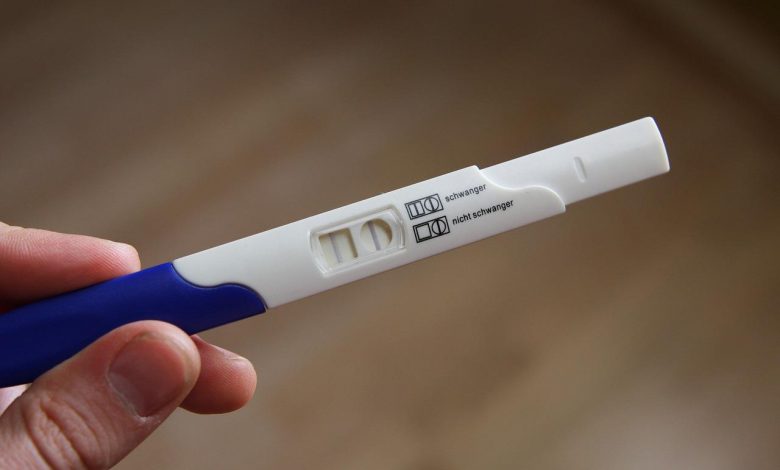Can You Get Pregnant On Depo Shot?

Most women are able to become pregnant from puberty, when their menstrual cycles begin, until menopause when their cycles stop. A pregnancy starts with fertilization when a woman’s egg joins with a man’s sperm. Fertilization usually takes place in a fallopian tube that links an ovary to the uterus. If the fertilized egg successfully travels down the fallopian tube and implants in the uterus, an embryo starts growing.
About once a month, an egg is released from one of a woman’s two ovaries. This is called ovulation. The egg then enters the nearby fallopian tube that leads to the uterus. If a woman and a man have unprotected sexual intercourse, sperm that is ejaculated from the man’s penis may reach the egg in the fallopian tube. If one of the sperm cells penetrates the egg, the egg is fertilized and begins developing.
The use of contraception can significantly lower your chances of becoming pregnant. In the United States, about 50% of all pregnancies are not planned. Of these unintended pregnancies, about 42% end in abortion. Women who do not use any contraception and who are sexually active for one year have an 85% chance of becoming pregnant sometime during that year. Variables such as age and frequency of sex could affect this number.
What is Depo Provera?
Depo Provera is a contraceptive injection containing progestogen. Some people call it “the injection”, “the jab” or “DP”. Progestogen is similar to one of the hormones produced naturally in the ovaries. The injection is given every 13 weeks. Depo Provera prevents pregnancy by stopping the ovaries from releasing an egg each month. There are also changes to the lining of the uterus (endometrium).
How does the birth control shot work?
Depo-Provera contains the hormone progestin. Progestin stops you from getting pregnant by preventing ovulation. When there’s no egg in the tube, pregnancy can’t happen. It also works by making cervical mucus thicker. When the mucus on the cervix is thicker, the sperm can’t get through. And when the sperm and the egg can’t get together, pregnancy can’t happen.
How soon does Depo-Provera work?
You’re immediately protected after receiving the first Depo-Provera shot if you get it during your menstrual period. If it’s given to you at another time during your cycle, you may need to wait a week to 10 days before having intercourse without a condom to prevent pregnancy.
Can you get pregnant on Depo shot?
Yes, three out of 100 women using Depo Provera will get pregnant each year making Depo Provera 97% effective. Nevertheless, Depo Provera shot is still highly effective. A 2013 study suggested that with perfect use, your chances of unplanned pregnancy are only about 0.2 percent during the first year. Your chances of becoming pregnant increase if you don’t receive the shot on time. This helps illustrate the difference between perfect use and typical use. Perfect use might involve getting the shot every 13 weeks on the dot with no variation.
Typical use, on the other hand, accounts for the fact that things don’t always happen according to plan. Maybe you get sick and have to reschedule your appointment past the 15-week mark, or you have P-in-V sex without a backup method during the window when you aren’t protected.
Depo-Provera shot is as effective as having a tubal ligation (getting your “tubes tied”). The success rate can be higher than other forms of birth control, including diaphragms, condoms, and pills. Older research suggested even this lower dose works to prevent pregnancy 99 percent of the time.
Olivia is one among the many women who got pregnant while on Depo shot, she received her first Depo-Provera shot at a local Planned Parenthood in June 2015, right before her period was expected. The clinic’s pregnancy test came back negative, but spoiler alert: She was already pregnant when she got the shot. “The hormones from Depo-Provera will mimic the symptoms of pregnancy,” her doctor told her. “Your period may be irregular, heavier or lighter at times.” A few weeks into July, her period hadn’t come at all, but she didn’t think anything of it. Then the fatigue hit. “I was beyond tired,” Olivia recalls, “I got horrible headaches every day. Finally, I went to the doctor and told her my symptoms: nausea, extreme exhaustion, and migraine like headaches. She diagnosed me with low thyroid.”
Because of her extreme fatigue, she lost her job as a coffee shop barista. She quit going to the gym, and spent the summer hiding from the 110-degree weather and fighting depression. Her unexplained increase in appetite, combined with an expired gym membership, meant she was starting to gain weight. Thinking it was all from the hormone shot, she vehemently told her boyfriend, “No more Depo!”
By November she was starting to feel better. Her energy had returned, the nausea had passed, but her period still hadn’t returned. “One day I called my mom crying because my jeans stopped buttoning. I was so confused. I’d been dieting, but the weight appeared only in my stomach, which was hard and bloated all the time.” Finally, her mom convinced her to buy a pregnancy test. “I knew I couldn’t be pregnant, because ever since I’d stopped the Depo, we’d been so careful. The two pink lines showed up as I was still peeing.” And then the real emotional roller coaster began. “I didn’t know how to even begin to process the news. From that day on, everything was a whirlwind.”
Four days later, an ultrasound showed that she was 23 weeks and 6 days along. “I remember the tech asking if we wanted to know the sex. My boyfriend and I were in shock. Only days after we found out we were expecting, we learned that we were having a boy. I remember feeling betrayed by modern medicine. As we counted backward, we realized I’d gotten pregnant before I even got the shot.” And that brought on a whole new round of worries.
Depo-Provera is considered a Category X drug by the FDA, which means that the medicine has been shown to create problems with the fetus. There’s a risk of harm to the unborn baby with using Category X drugs during pregnancy, and most doctors agree they should be avoided whenever possible.
Side Effects of the Depo-Provera Shot
When you’re on Depo-Provera, you may notice side effects like:
- Acne
- Belly pain
- Bloating
- Breakthrough bleeding
- Changes in appetite
- Depression
- Dizziness
- Fatigue
- Hair loss
- Headaches
- Less interest in sex
- Loss of bone mineral density
- Nervousness
- Uneven menstrual periods or no periods at all
- Unwanted facial and body hair
- Weakness
- Weight gain
Changes to your menstrual cycle are the most common side effects. After a year of use, about 50% of women will stop getting their periods. If this happens to you, your period should come back when you stop getting the shots.
Long-term use of Depo-Provera may cause you to lose bone mineral density, which makes you more likely to get osteoporosis. Your chances are higher if you’ve taken the shot for longer than 2 years, especially if osteoporosis runs in your family if you drink a lot, if you smoke, or if you have other risk factors for the condition.





